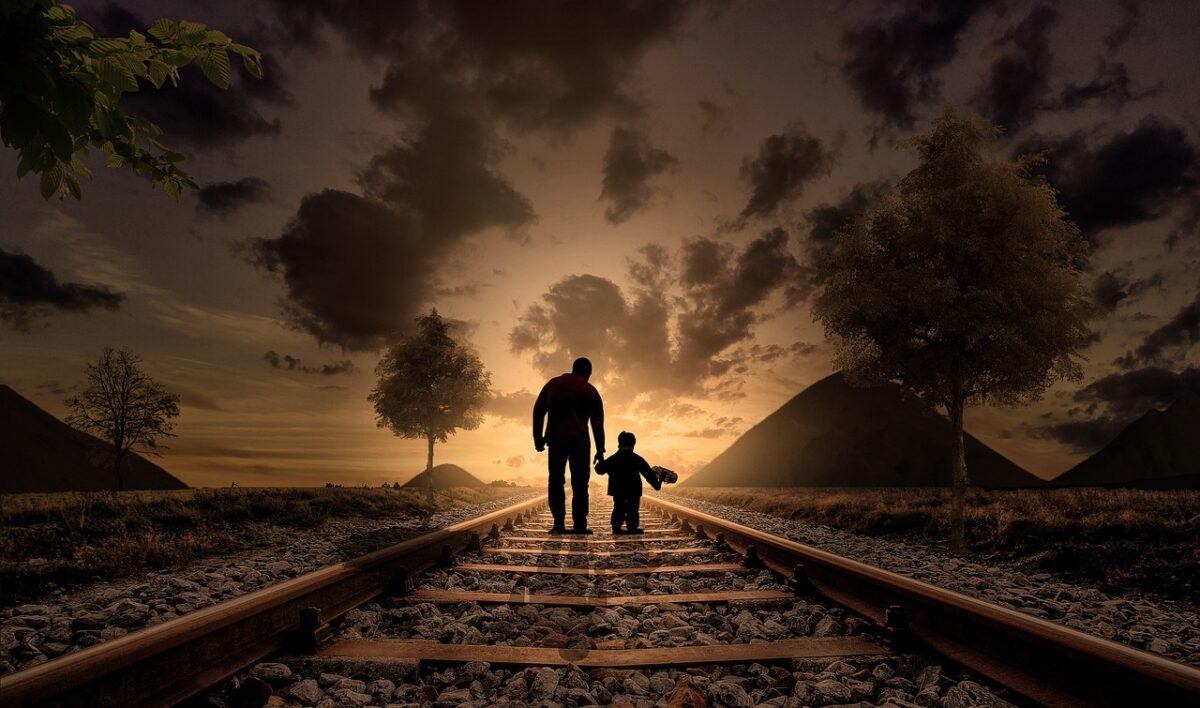

The Toughest Job You’ll Ever Love
I became a father for the first time seventeen years ago this January. No one could have told me then, though they certainly tried to in varying forms of both inspirational hyperbole and threatening menace, that my life would be dramatically transformed from that day forward. Flash forward all those years and home-based tragedies later, and I count myself blessed to be the parent of two breathtaking humans. I took my son for his first college tour last week, and it occurred to me that my life was set to change again, that my relationship with these two breathing, walking manifestations of life would be unequivocally altered in the years ahead. For where they go from here is a path of their own making.
They say parenting is the one job that if you do it well, you eventually make yourself obsolete. After all, your role in parenting is to help guide them into becoming autonomous human beings, people capable of making their own sometimes disastrous choices. At this point, they have gleaned from you most of what they can, more from your own personal choices and behaviours than the lectures or intentional teachings. If you have done it right, they have imbibed enough of you to know that they must also carve out a sense of themselves, their own unique identity, separate and yet somehow inextricably interwoven with your own. You have taught them how to be good, moral people, filling them not with your own personal code of conduct, but rather with a sense of how to make their own moral choices, even in the conflicting circumstances you know will await them. You know they will make choices you don’t agree with, and that is part of the bargain you must learn to accept.

Watching your children make poor choices, or at least poor choices in your venerable estimation, is part of the process. You can give them your insight and wisdom, but in the end, the decisions must be their own, and you must give them the freedom to fail. Being a sideline observer can be agonising as we watch them endure the pains of their mistakes. But those are the moments they will grow from, and we must trust in the long-range plan. Most excruciating is when their decisions hurt others, as we want to compel them into being the best version of themselves. But sometimes they will fall short of that mark as they follow their steady evolution in getting there.
As we walked back to our car along the hilly, tree-lined streets of Golden, Colorado, my son turned to me and thanked me for taking him. He has some heart-filled emotional moments, though his teenage years often find him being more of a horse’s ass than anything else. He is funny, he is smart, and he is willing to work for his success. But more than anything else, he is kind. And for that, I am eternally grateful and proud.
Driving along, we talked about what he thought of the school and what he envisioned his future to be. He’s a math and science kid, so he’s been focused primarily on aerospace engineering. But touring the prosthetics lab at School of Mines made him consider a career working in biomedical engineering where he could put his considerable talents towards making the lives of others better by helping create devices that would allow them to walk or lift or see. I just sat and listened, nodding my head as his stream of consciousness poured out out over the dashboard of the Honda Pilot. There was no need to interject or give my two cents. I had already done that long ago.
Where he goes from here will be based upon the decisions he makes for his own life from this point forward. I will be here to support him regardless. Like that episode in the car, all I can do is nod my head in assent. That is the way.
Some of us soon-to-be empty nesters balk at that proposition, incapable of acquiescing to the choices our children make. But that is the beauty of the whole arrangement. You don’t really get a choice in the matter. They are growing up before your eyes whether you like it or not. They will grab the reins of their own lives regardless of our desire to dictate whom they might become. But though that loss of stewardship may leave us notably disconcerted, we must believe that we have given them everything they need, and let them drive. We must rely on the knowledge that the lessons we taught them in the first decade and a half will carry them through the next seven decades or so, or at least until they get a damn job.
I guess what it all comes down to is that we can either choose to embrace their autonomy and accept the loss of our determination in that process or wallow in the loss of something that was never ours to possess in the first place. Learning to accept the course of time and our place within it is a crucial life skill for both our success as a parent and our own self-content. But it is a skill we are not always particularly adept at. Start by letting them go. And in so doing, allow them to become the person they were always intended to be.
Steven Craig is the author of the best-selling novel WAITING FOR TODAY, as well as numerous published poems, short stories, and dramatic works. Read his blog TRUTH: In 1000 Words or Less every THURSDAY at www.waitingfortoday.com




